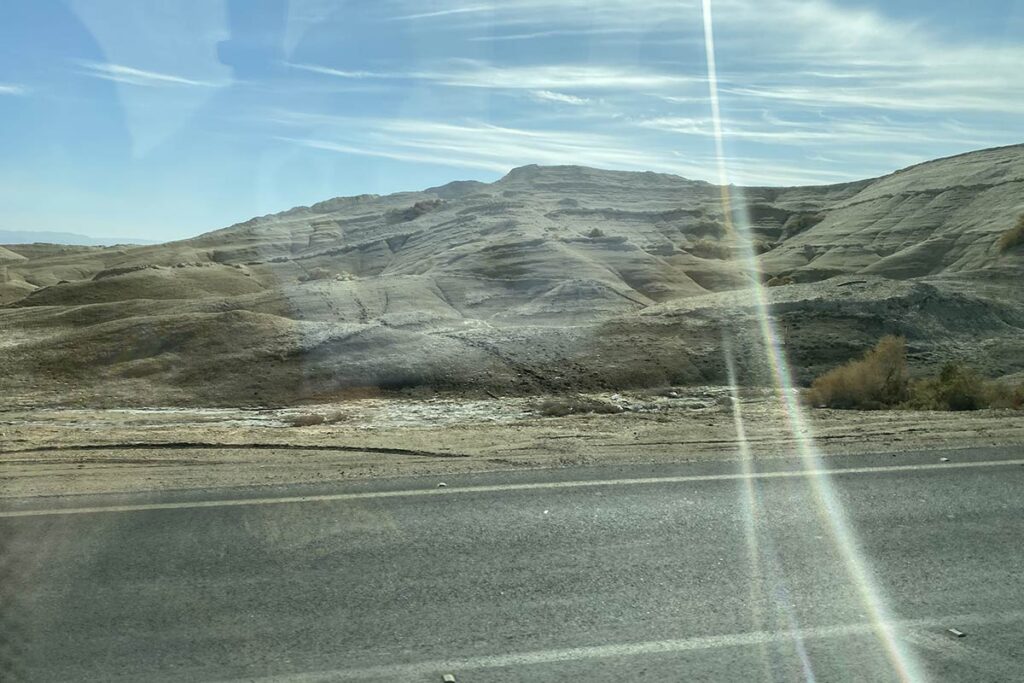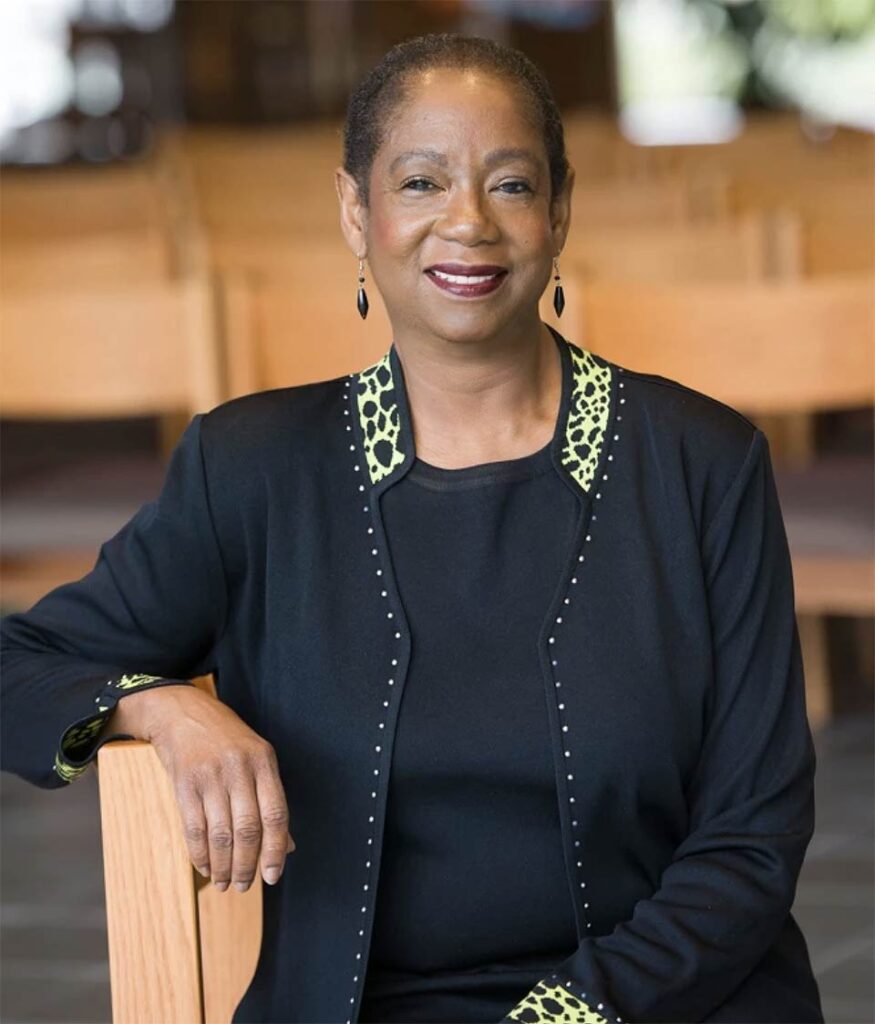Bearing Witness: Dr. Linda Thomas Reflects on a Pilgrimage to Palestine and Israel

When Dr. Linda E. Thomas, Dean and Vice President of Academic Affairs; Bernard Fischer, Westberg Distinguished Ministry Professor of Theology and Anthropology; and Director of the Reverend Dr. Albert “Pete” Pero, Jr. and the Reverend Dr. Cheryl Stewart Pero Center for Intersectionality Studies at LSTC, was approached by Rev. Dr. Waltrina N. Middleton of the Community Renewal Society, an organization committed to transforming society toward greater social justice at the intersection of racism and poverty, to participate in a pilgrimage of African-American leaders to Palestine over a year ago, she was intrigued.

From the outset, the pilgrimage was centered on bearing witness. “Initially,” Dr. Thomas reflects, “I could not attend. However, a year later, I confidently participated in the 142nd Annual Membership Assembly’s pilgrimage to Palestine this past November.” Alongside a group of over ten activists, Dr. Thomas traveled to one of the most severely war-torn regions to bear witness to the ongoing genocide in Palestine. “Dr. Waltrina Middleton invited us because her connections in Palestine recognized that African Americans have a profound understanding of the struggles they are enduring,” Dr. Thomas asserted. In a powerful display of solidarity with those currently affected by violence in the region, Dr. Thomas embraced the invitation and delivered a compelling paper that contrasted the experiences of Palestinian women with those of African American women living under oppressive regimes.
“I’ll just cut it to the chase,” Dr. Thomas said when recalling her time in Palestine: “This is an apartheid state. I’ve never seen such systemic evil in my life.” She recalls witnessing desperate poverty only a few kilometers from relative normalcy in commercial settings. She remembers simple concrete shelters wedged into public walkways beside bus stops outside of Gaza. She can still see the makeshift homes residents of Gaza created from simple cloth to protect their families from the human feces and detritus hurled into their living spaces by Zionist rebels. And she remembers with heartbreaking clarity the stories of families with small children forced from simple tents in Gaza by Zionist youth with knives.
Dr. Thomas observed the crisis unfolding in the Middle East, from Bethlehem to the West Bank, Amman, and the edge of Gaza. She also experienced the physical manifestation of apartheid as separation—checkpoint crossings, barriers, and settlements—each symbolizing the daily struggles for safety and freedom. And once they crossed these fraught spaces, Dr. Thomas and her companions witnessed further brutality. “From the edge of Gaza, we could see the artillery going in because we could see plumes of smoke,” she remembers. “And from a nearby hill, you could see Zionists coming to watch for their entertainment as though it was a fun night out.” Dr. Thomas and her group responded by praying over these sacred spaces, calling for peace and justice.
While most of Dr. Thomas’ time during the pilgrimage was spent traveling to different parts of Palestine with local guides, Dr. Thomas also presented a paper focusing on the intersection of struggles faced by Palestinian women and African American women in police states. She sought to bridge experiences across distinct yet overlapping struggles through her work. “I introduced my topic as a Womanist perspective,” she shared. “Women are clear bearers of our culture, whatever culture we happen to be in now.” By giving voice to these narratives, her presentation aimed to prompt theological reflection and foster solidarity in the face of shared injustices. Her work resonated with those in attendance; she hopes to continue the project by interviewing Palestinian women about their experiences during this ongoing struggle.
Beyond academic discourse, the pilgrimage was enriched by personal encounters and community building. During the day, Palestinian merchants shared their art, creating spaces for dialogue and exchange. In the evenings, local community and group members’ presentations deepened the participants’ understanding of the complexities of daily life in these regions. “Through these interactions, it became clear that bearing witness is not a passive act—it is activism,” Dr. Thomas noted. Listening to local voices and engaging in mutual learning are essential to reframing narratives shaped by geopolitical interests and biased reporting. Throughout the pilgrimage, Dr. Thomas emphasized the importance of firsthand engagement. Traveling with those at risk, listening to scholars from the region, and supporting local voices are crucial steps toward a more nuanced and empathetic understanding of conflict zones. “To future scholars, faith leaders, and those committed to building a more just world, Dr. Thomas advises: “Go for yourself. You need to see the conditions on the ground for yourself. The news is biased by what media outlets want you to hear. But if you go for yourself, you will learn from people on the ground.”